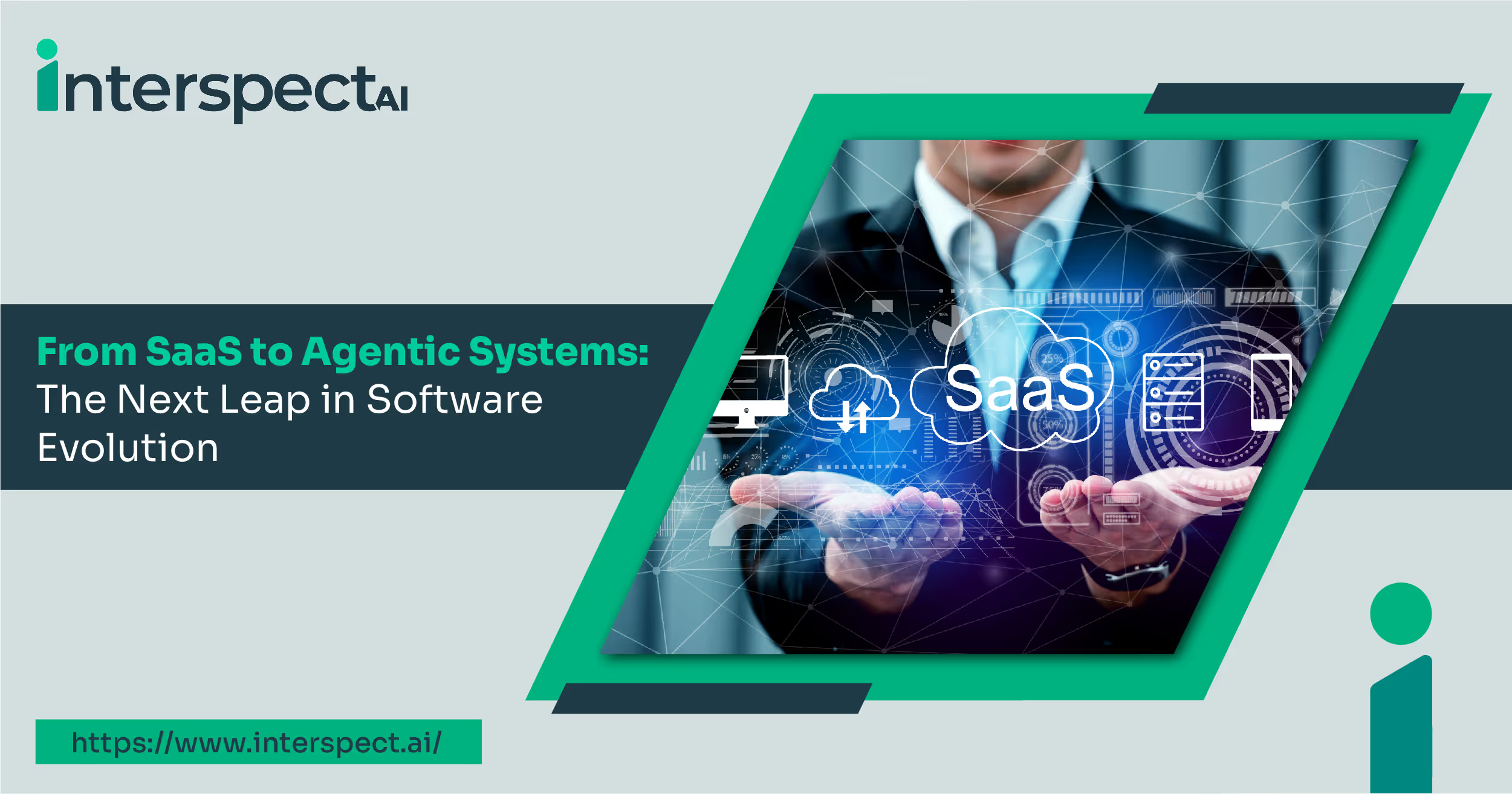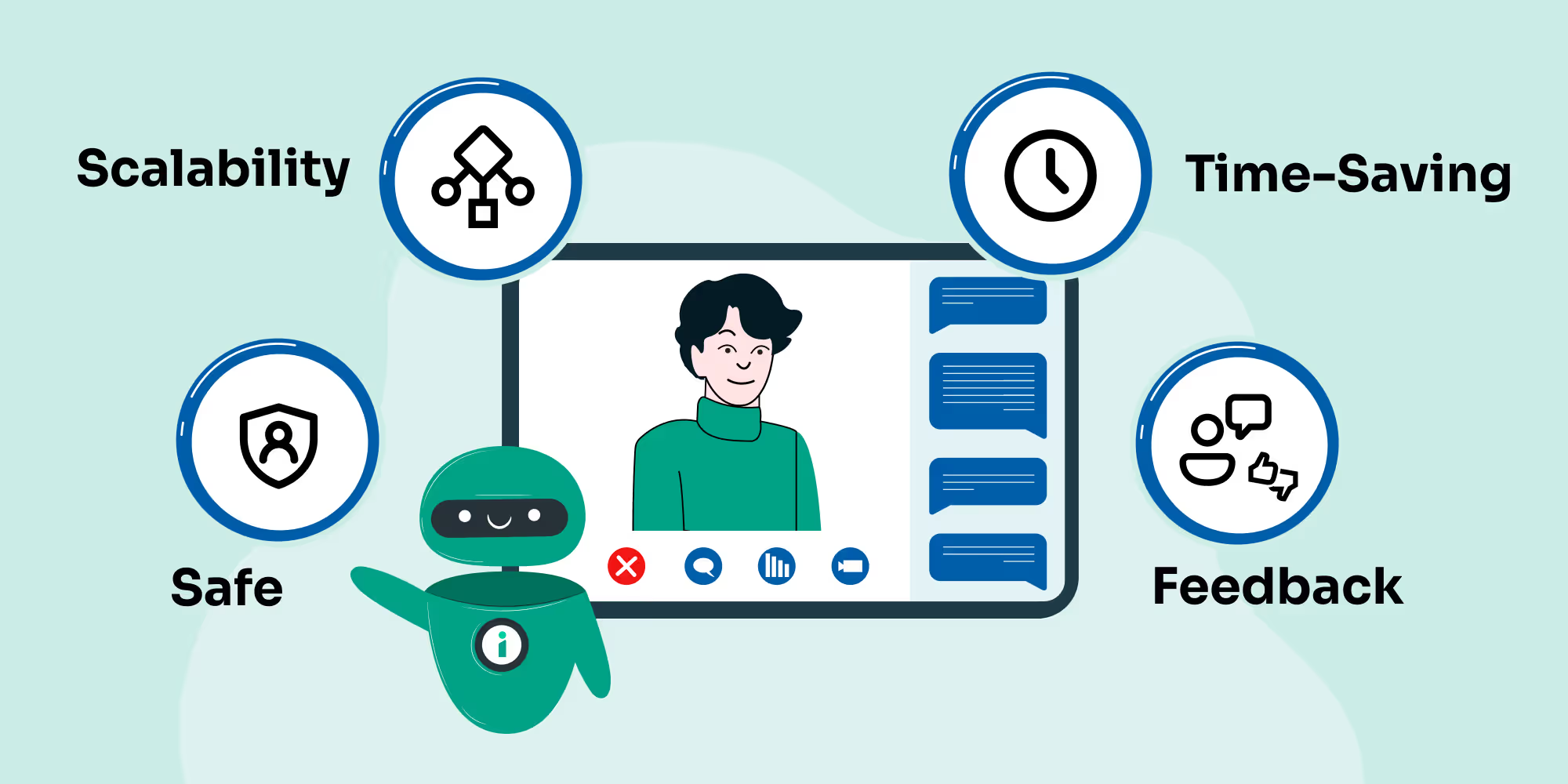From SaaS to Agentic Systems: The Next Leap in Software Evolution



The software industry stands at a profound inflection point. After decades of Software-as-a-Service (SaaS) transforming how we access applications, we're witnessing the emergence of something fundamentally different: agentic systems. This represents a paradigmatic shift toward intelligent, autonomous systems that can reason, plan, and act independently.
While SaaS helped us move from legacy applications to cloud-based services, agentic systems are transforming software behavior from reactive tools to proactive collaborators. Understanding this transition is crucial for technology leaders, as it will reshape how organizations interact with software systems in the coming decade.
Defining the Agentic Paradigm
Agentic systems represent a fundamental reimagining of software architecture and behavior. Unlike traditional applications that execute predetermined workflows, agentic systems can perceive their environment, formulate plans based on context, and perform autonomous actions to achieve specified objectives.
The recent research on vertical AI agents reveals that these systems derive their power from the sophisticated integration of multiple cognitive capabilities. At their core, they combine Large Language Models (LLMs) with specialized architectural patterns that enable genuinely intelligent behavior across diverse domains.
Central to this paradigm is the Cognitive Skills Module—purpose-built components that incorporate domain-specific knowledge and reasoning capabilities. This represents a departure from generic AI models toward specialized intelligence tailored for specific industries and organizational contexts.
The Limitations Traditional SaaS Couldn't Solve
Traditional SaaS platforms, despite their revolutionary impact, operate within constraints that have become increasingly apparent.
- Workflow Rigidity: Most SaaS applications impose predetermined workflows that require users to adapt their processes to fit software constraints, creating cognitive overhead and reducing efficiency.
- Integration Fragmentation: While modern SaaS platforms offer APIs, connecting multiple systems remains technically complex. Each integration point introduces potential failure modes, and changes in one system can cascade through interconnected workflows.
- Context Switching Overhead: Knowledge workers utilize 10-15 different SaaS applications daily, constantly switching between interfaces and manually transferring context. This fragmentation reduces cognitive efficiency and increases error rates.
- Limited Adaptability: Traditional SaaS solutions provide standardized solutions that cannot be meaningfully adapted to individual cognitive patterns, organizational cultures, or unique operational requirements.
- Reactive Architecture: Current SaaS systems require explicit user initiation for every action. They cannot proactively identify emerging issues, suggest optimizations, or autonomously execute improvements.
How Agentic Systems Transcend These Challenges
Agentic systems fundamentally invert the traditional human-software relationship, creating truly collaborative partnerships.
Adaptive Workflow Intelligence
Rather than imposing rigid processes, agentic systems understand user intent and dynamically determine optimal pathways to achieve desired outcomes. They can recognize when standard procedures should be modified based on context or evolving requirements.
Seamless System Orchestration
Agentic systems excel at understanding relationships between disparate data sources and tools, automatically coordinating actions across multiple platforms without requiring explicit integration work.
Persistent Contextual Memory
These systems maintain comprehensive awareness of user preferences, project histories, and organizational goals. This persistent context enables informed decision-making that considers both immediate requirements and broader strategic objectives.
Autonomous Problem Resolution
Agentic systems can identify potential issues before they manifest, evaluate alternative solutions, and implement corrective actions without requiring human intervention.
Architectural Innovations
The technical architecture of agentic systems represents a fundamental departure from traditional software design. These systems employ sophisticated multi-agent frameworks that distribute intelligence across specialized components.
- Planning and Strategy Modules enable systems to break down complex objectives into manageable subtasks and develop effective execution strategies.
- Multi-Layered Memory Systems incorporate both short-term working memory for active tasks and long-term episodic memory for learned experiences and domain knowledge.
- Dynamic Tool Integration features adaptive frameworks that can discover and utilize the most suitable tools based on the current task requirements.
- Reflective Learning Mechanisms continuously analyze performance and adjust behavior based on outcomes and feedback.
The Cognitive Skills Module: Industry-Specific Intelligence
One of the most significant innovations is the development of Cognitive Skills Modules—specialized components that incorporate deep domain knowledge and industry-specific reasoning capabilities.
These modules encode the reasoning patterns, best practices, and contextual understanding that domain experts develop through experience. In healthcare, they understand clinical decision-making processes. In finance, they comprehend market dynamics and risk assessment methodologies.
This specialization enables agentic systems to operate with nuanced judgment while maintaining the consistency and scalability advantages of software systems.
Beyond Context-Awareness to Contextual Intelligence
Agentic systems represent a quantum leap beyond traditional context-aware computing. They don't merely sense environmental parameters; they comprehend complex situational factors, understand user intent within broader contexts, and reason about optimal actions given competing priorities.
This enhanced contextual intelligence enables agentic systems to operate more like knowledgeable colleagues than traditional software tools. They can interpret ambiguous requests, make reasonable assumptions, and take appropriate actions even when instructions are incomplete or unclear.
Industry Transformation Patterns
Agentic systems are demonstrating transformative potential across multiple industries.
- In healthcare, they continuously monitor patient data, coordinate care protocols, and ensure regulatory compliance while adapting to individual patient needs.
- In financial services, they perform real-time risk assessment, detect fraudulent patterns, and ensure regulatory compliance across different jurisdictions.
- In manufacturing, they optimize production schedules, predict maintenance requirements, and coordinate supply chain logistics with minimal human intervention.
Economic Implications
The shift represents an economic transformation that could fundamentally alter industry structures. Traditional per-user subscription models may evolve toward outcome-based pricing, where organizations pay for results achieved rather than software access.
Agentic systems also address "SaaS sprawl"—by providing intelligent orchestration across multiple functions, fewer agentic systems could replace numerous single-purpose applications.
Technical Challenges
The transition introduces complex challenges. Trust and reliability become paramount when systems can take autonomous actions affecting business outcomes. Explainability and auditability present significant challenges when dealing with complex decision-making systems. Data privacy and security concerns intensify when intelligent systems have broader access to organizational resources.
Pioneering the Agentic Transformation
At InterspectAI, we've been at the forefront of this transformation, building conversational intelligence platforms powered by agentic AI that reimagine organizational interviews across hiring, research, and compliance. Led by our team, including Dr. Fouad Bousetouane, recognized as one of the "Top 30 AI Scientists" and a lecturer in Generative AI at the University of Chicago, we've pioneered the integration of Cognitive Skills Modules that incorporate domain-specific knowledge. Our real-world deployments have demonstrated how agentic systems transform workflows from reactive processes to proactive, intelligent collaborations.
The Future is Agentic
The evolution from SaaS to agentic systems represents a fundamental shift toward intelligent partners capable of understanding objectives, making decisions, and taking autonomous actions. This transformation will reshape industries, create competitive advantages, and necessitate the development of new capabilities for organizations to work effectively with intelligent systems.
As we stand at this pivotal moment, understanding agentic systems becomes increasingly crucial for technology leaders and business strategists. The organizations that successfully navigate this transition will gain significant advantages in an increasingly AI-driven world.
The age of truly autonomous software is beginning. The question isn't whether this transformation will occur, but how quickly organizations can adapt to this new paradigm of human-software collaboration. The future of software is agentic, and that future is arriving faster than most realize.
FAQs
1. What distinguishes agentic systems from traditional SaaS platforms?
Agentic systems extend beyond SaaS by autonomously perceiving context, formulating plans, and executing actions without explicit user commands. While SaaS delivers cloud-based services through predefined workflows, agentic systems adapt to evolving situations and proactively collaborate to achieve goals.
2. How do Cognitive Skills Modules enhance agentic system performance?
Cognitive Skills Modules embed domain-specific knowledge and reasoning patterns into agentic architectures. These specialized components enable systems to apply expert-level judgment such as clinical decision protocols in healthcare or risk assessment methodologies in finance, ensuring more accurate, contextually appropriate actions.
3. In which industries are agentic systems already making an impact?
Agentic systems are transforming multiple sectors: in healthcare, they continuously monitor patient data and coordinate care; in financial services, they perform real-time risk assessment and fraud detection; in manufacturing, they optimize production schedules and supply chains; and in professional services, they assist with research, compliance, and strategic recommendations.
4. What challenges should organizations anticipate when adopting agentic systems?
Key challenges include establishing trust and governance to oversee autonomous actions, ensuring explainability for complex decision-making processes, and addressing heightened concerns regarding data privacy and security. Organizations must also develop new skills in agent orchestration, outcome specification, and performance monitoring to fully leverage agentic capabilities.
Subscribe to The InterspectAI Blog


%201.svg)






